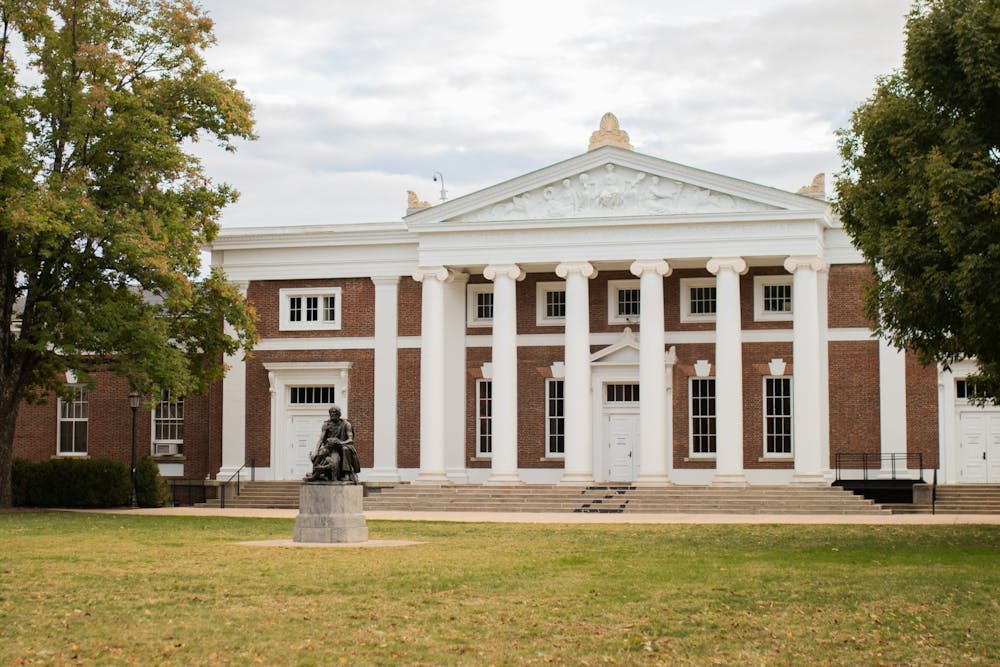Recent discourse concerning the Black experience at the University paints a dismal picture. Take, for example, the language employed in an open letter that purports to be representative of Black U.Va. The letter, in response to the University’s justified hesitation to be forthcoming with the evidence of an investigation concerning the Homer statue hate crime, conjures up the image of noble victims who “continue to strive for academic excellence while dealing with attacks on [their] physical persons.” Despite such admirable resilience, it is unclear what physical attacks — if any — the authors are actually victims of. Consequently, the declarations within this letter necessitate wider discourse on the legitimacy of such dialogue.
Publications like the above are one of many published in The Cavalier Daily. Alarmingly, these commentaries all read as a mimicry of the same one-sided narrative, one uncritically accepted blanket truth of the Black experience. Interestingly enough, the most troubling aspect of these writings isn’t that the Black student experience seems to be defined collectively by an unending crusade against racism. Instead, what’s more concerning is that they all propagate an exaggerated conception that no one dares to publicly challenge — that Black students are victims of perpetual suffering.
Lack of opposition to this falsehood is understandable. Media, both on Grounds and in the U.S., presents a suffocating reality of inescapable anguish and misery that, if to be believed, all Black Americans seemingly experience. The result is an overshadowing of a more authentic, yet often-disregarded, truth of the unprecedented flourishing of this generation of Black students. Proof is unmistakably plain to see across Grounds, from the innumerable expanse of resources to the recruitment and outreach programs that financially, academically and professionally support Black students. Thus, insufficient attention to the truth of Black advancement isn’t because of its nonexistence. The reason, I believe, is because of a widespread devotion to the cult of Black victimhood.
The cult of Black victimhood is grounded in dissonance with reality. Admission requires its adherents to fixate on the vestiges of enslavement and racism while minimizing signs of their demise. The result is a cycle of perceived victimhood in situations that may have nothing to do with race or an inflation of the supposed struggles that define being Black. However, despite its blinding deceptions, we are not defined by a monolithic struggle to operate our entire lives in battle mode.
An explanation for how Black victimhood achieved predominance and why it is reinforced lies within its promise of social gain. Accordingly, devotees to the cult of Black victimhood are plentiful.
To Black people, the cult of victimhood promises a sense of moral superiority and entitlement to sympathy and attention. Unbelievable statements such as, “when Black folks say some s—t is racist, believe them the first time,” affirm this. Do not misunderstand me, uplifting Black voices in the continued effort to dismantle racial inequality is essential. But passively accepting the validity of this statement implies that anything — such as choosing to stand on the bus instead of sitting — can be a racial offense. Thus, allowing someone to make unchallenged claims because of their skin color is antithetical to the fair society we all claim to want. There are many examples of the consequences of allowing this. One man, an aide to former Washington D.C. mayor Anthony Williams, lost his entire livelihood for using a word with no relation to a racial slur in a sentence about being frugal with the distribution of funding.
To white people, the cult of victimhood promises exoneration. One cannot be guilty of racism if one's relationship with Black people is structured around appeasement. The same expectation applies to institutions. Still, even that gives no guarantee against allegations of racism for failure to meet all Black demands. The University is well acquainted with this. The “Open Letter from Black U.Va.'' accuses the University of committing “explicit acts of collusion against the safety and well-being of Black students.” At best, this accusation is an ill-founded claim. At worst, one could soundly regard this as fearmongering. Given my familiarity with the conversations that have been occurring in Black forums — from paranoia about a man riding his bike with the Mexican flag to a theory that a gift in the form of an anonymous check for $888.88 means “Heil Hitler” three times over — I am inclined to conclude the latter. Demanding more of the University will always be indispensable so long as we aspire to progress. But it does not need to be smeared with language that guilt trips and conveys exaggerated expressions of suffering and impending tragedy.
Like any cult, the cult of Black victimhood discourages questioning and dissent and encourages a polarizing us-versus-them mentality that fuels resentment and conflict. It asserts that there is no Black identity outside the context of victimhood. The most disgraceful repercussion is its assault on progress. Far from championing equality, the cult of Black victimhood ensures that Black people retain a false identity as an unexceptional, pitiable and impotent other. Black people are not perpetual victims. The course of our history and achievements — against all odds — is a testament to our powerful evolution. If we truly want to achieve a fair and equal society, the cult of Black victimhood must be destroyed.
Klarke Mitchell is a Viewpoint Writer who writes about University life for The Cavalier Daily. She can be reached at opinion@cavalierdaily.com.
The opinions expressed in this column are not necessarily those of The Cavalier Daily. Columns represent the views of the authors alone.







